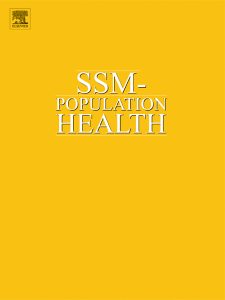
National Family Health Survey round 4 of 2015–2016 (IIPS & ICF, 2017) bring important data for planning and policy evaluation but they also present some puzzles. Total fertility rate declined substantially between 2005-06 when NFHS-3 (IIPS & Macro International, 2007) was conducted and 2015-16 from 2.68 (95% Confidence Interval (CI): 2.62–2.74) to 2.18 (95% CI 2.16–2.20) and is currently just above the replacement level of fertility of 2.1 children per women. However, over the same period, current contraceptive use declined from 56.3% (95% CI: 55.7%–57.0%) to 53.5% (95% CI: 53.3%–53.8%).
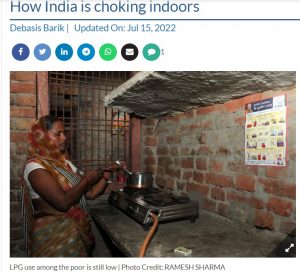
Indoor air pollution is as much a health hazard as outdoor pollution, and women bear the brunt of it. Use of clean cooking fuel must increase.
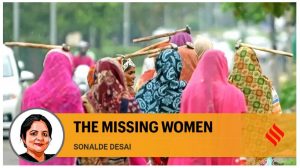
The size of our labour force is constrained by the absence of women from the workforce. Only about 30% of women aged 15 and above are employed either in wage work on family farms and businesses.
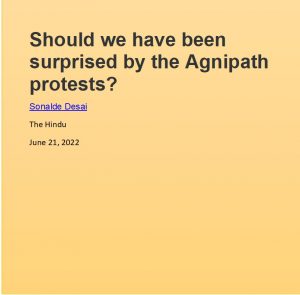
A government job, with its benefits and safety net, is an aspiration for most Indians. Any perceived rollback in such employment opportunities is bound to fuel anxiety
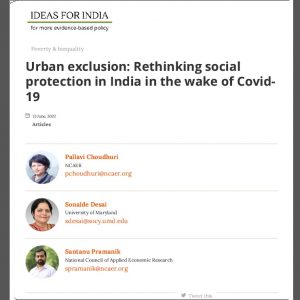
Economic insecurity caused by lockdowns during the early days of Covid-19 forced many households to rely on government welfare schemes to fulfil their consumption needs. Using data from the June 2020 round of the Delhi NCR Coronavirus Telephone Survey, this article shows that few households received both foodgrains and cash transfers, particularly in urban areas, and urban residents were also eight percentage points less likely to receive cash transfers vis-à-vis their rural counterparts.










